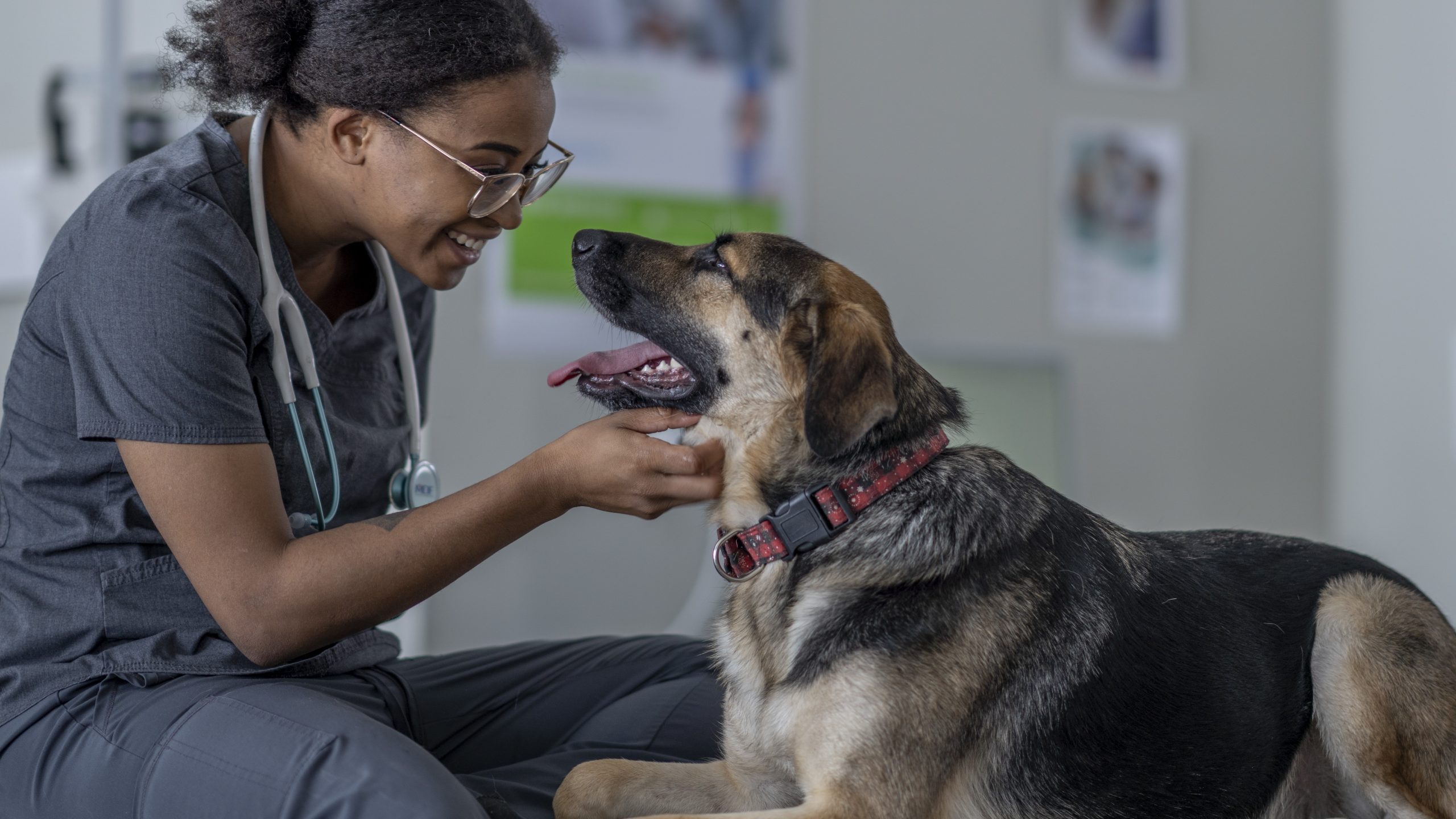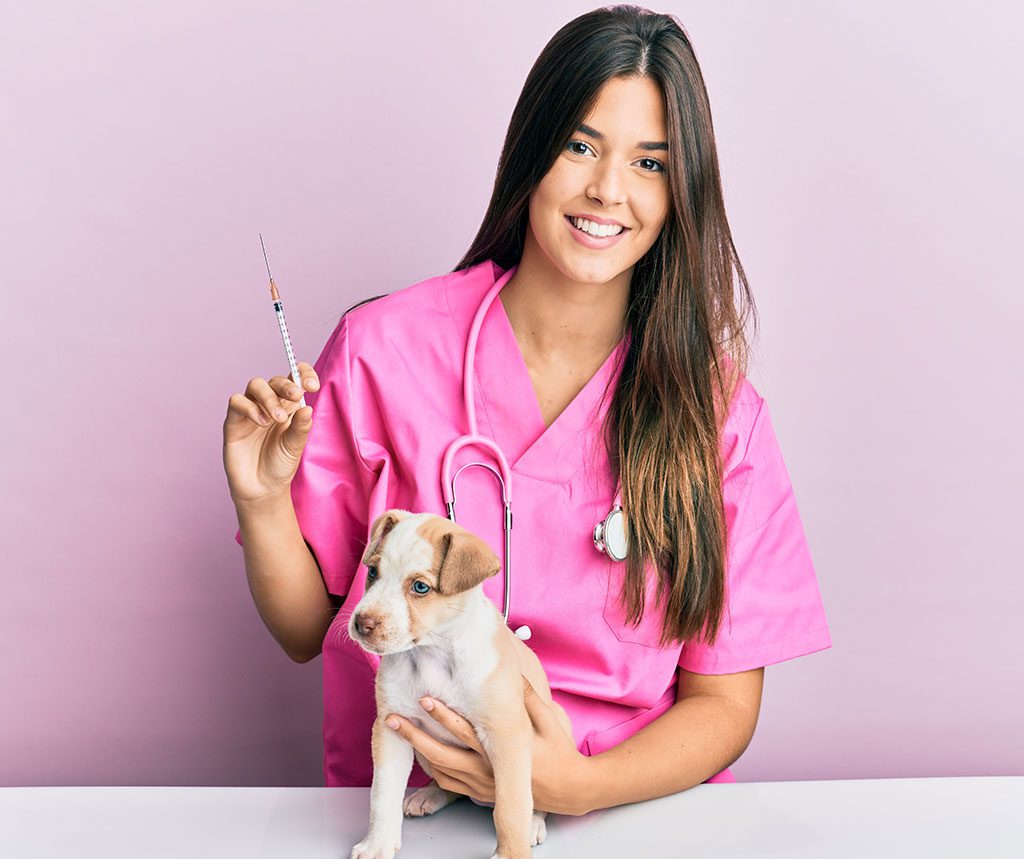Unveiling the Essential Duty of Veterinarians in Animal Health And Wellness
The multifaceted responsibilities of veterinarians expand much beyond the boundaries of typical pet treatment, placing them as essential contributors to both private pet health and wellness and wider ecological security. Their proficiency in disease prevention, nutritional support, and behavior management plays an important duty in the well-being of animals and animals alike. Moreover, the implications of their work reverberate through public health and wellness and wildlife preservation initiatives, highlighting a complex interplay typically ignored. As we explore these measurements, the question occurs: what are the unseen obstacles and chances that shape the future of veterinary medicine?
Relevance of Veterinary Care
Although many animal proprietors may view veterinary care as a regular requirement, its value expands far beyond simple check-ups. Veterinary treatment plays a crucial duty in making sure the overall wellness and well-being of animals, encompassing a vast array of solutions that address both therapeutic and precautionary requirements. Routine veterinary gos to allow for early discovery of possible health issues, thus enhancing the likelihood of successful therapy and recovery.
Moreover, veterinarians give vital guidance on nutrition, habits, and basic treatment, furnishing animal proprietors with the knowledge needed to preserve their animals' high quality of life. Vaccinations and parasite control are basic components of veterinary care, shielding both private family pets and the wider community from zoonotic illness. The expertise of veterinarians is essential in diagnosing and taking care of intricate medical problems, promoting advanced medical interventions, and providing critical emergency situation treatment.
Furthermore, veterinary specialists add dramatically to public health and wellness efforts by checking condition frequency within animal populaces. Their duty reaches making certain food safety through the health and wellness administration of livestock, influencing the agricultural sector and human health and wellness alike. Thus, veterinary treatment is essential to both pet welfare and public security, highlighting its significance in modern society.
Functions in Illness Avoidance
Veterinarians play a pivotal function in disease avoidance, functioning as both guardians of animal health and wellness and protectors of public security. Their proficiency contributes in recognizing, monitoring, and managing contagious illness that can influence both animals and human beings. Through regular health and wellness analyses and vaccinations, veterinarians aid minimize the spread of zoonotic illness, which can have severe effects for public health and wellness.
Furthermore, vets participate in positive education and learning, notifying pet proprietors and animals producers about finest techniques in health and biosecurity. These procedures are essential in avoiding break outs, particularly in farming setups where close contact in between pets can promote condition transmission. In addition, veterinarians usually collaborate with public health and wellness authorities to track disease patterns and establish reaction approaches, ensuring that potential health risks are dealt with quickly.
Vets also conduct research to recognize disease devices and boost diagnostic strategies, contributing significantly to the improvement of precautionary medicine. By advertising liable family pet ownership, inoculation programs, and routine vet examinations, they equip neighborhoods to take an active role in illness prevention. Essentially, the complex contributions of veterinarians are vital in guarding not only animal populations however additionally the health and wellness of the wider area.
Contribution to Food Security
Ensuring food security is a crucial facet of veterinary medication that straight influences public health. Veterinarians visit our website play an important role in the food supply chain, from ranch to table, mitigating risks connected with foodborne illnesses. Their competence is essential in monitoring pet wellness, executing biosecurity actions, and looking after the humane therapy of animals, which collectively contribute to the manufacturing of risk-free food.

Additionally, veterinarians inform farmers and food manufacturers on ideal methods for pet husbandry and hygiene, which additionally enhances food safety and security. By working together with public health and wellness officials, veterinarians help trace and control outbreaks of foodborne virus, thus securing customer wellness. Their complex contributions are vital in preserving the honesty and safety of our food systems.
Effect On Wildlife Conservation
The duty of veterinarians prolongs beyond residential pets to incorporate considerable contributions to wild animals conservation initiatives. These experts are essential in taking care of and securing wild animals populations, specifically when faced with environment loss, climate adjustment, and human advancement. Vets participate in different activities, consisting of wildlife recovery, population wellness assessments, and condition security.
In wildlife recovery, veterinarians provide treatment to hurt or sick animals, promoting their healing and successful reintegration right into their all-natural habitats. They additionally carry out health assessments on wild populations, which are critical for monitoring the general wellness of environments. Vet Mckinney. By determining and managing illness that can spread between wildlife and domestic animals, veterinarians play a vital role in stopping prospective episodes that might endanger both animal and human populaces
Furthermore, veterinarians join conservation techniques by recommending on best practices for habitat administration and species security, typically collaborating with conservation companies and governmental agencies. Their expertise in animal health and wellness and welfare is crucial in creating policies that profit not only wild animals yet additionally the biodiversity that sustains environmental equilibrium. Via these efforts, vets significantly add to the conservation of wildlife and the environments they live in.
Advancements in Vet Medication
Recent developments in vet medication have actually greatly improved the capacity to address both residential and wildlife wellness obstacles. Advancements in analysis innovations, such as advanced imaging techniques and molecular diagnostics, allow vets to determine conditions at earlier stages, inevitably boosting therapy end results. For example, the application of PCR (polymerase chain response) screening has reinvented the discovery of anchor infectious illness, permitting exact and quick identification of microorganisms.

Innovations in vaccine development, particularly making use of recombinant and mRNA modern technologies, have actually likewise played a critical duty in avoiding break outs and managing zoonotic illness. These vaccinations provide boosted efficacy and security accounts, benefiting animal populaces and straight from the source public wellness alike.
Finally, the raising focus on One Wellness initiatives highlights the interconnectedness of human, pet, and environmental health and wellness, fostering collective initiatives amongst veterinarians, doctor, and ecologists. This all natural approach is essential for positive management and illness avoidance in a rapidly altering globe.
Final Thought
In verdict, the diverse role of vets expands much beyond standard pet dog treatment, incorporating disease avoidance, food safety and security, and wildlife conservation. Their expertise not only improves the health and wellness and wellness of residential pets yet additionally safeguards public wellness and ecological balance. As improvements in vet medication remain to emerge, the relevance of vets in advertising pet well-being and making certain lasting practices becomes increasingly critical, highlighting their important contribution to society and the atmosphere.

In addition, veterinarians commonly work together with public health and wellness authorities to track illness patterns and create reaction strategies, making certain that prospective health threats are resolved quickly.
By working together with public wellness officials, veterinarians assist trace and control episodes of foodborne pathogens, thereby shielding consumer health. Their competence not just boosts the wellness and health of domestic pets yet additionally safeguards public health and ecological balance.